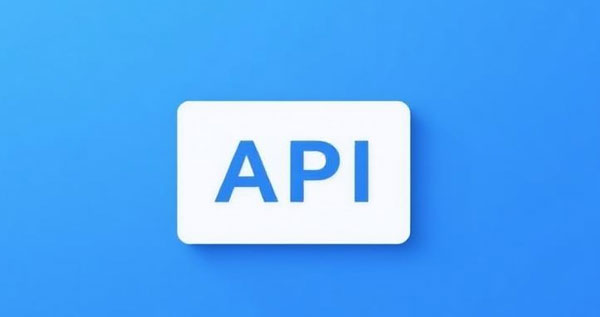How to Use Proxy IPs to Retrieve E-Commerce Data: Avoiding Blocks and Improving Data Scraping Efficiency
In today's rapidly growing e-commerce landscape, obtaining precise and comprehensive data has become an essential task for businesses and developers. As internet technologies continue to advance, data scraping techniques are maturing as well, but they also face several challenges. To overcome these issues, Proxy IPs have become a vital tool for many developers and companies to retrieve e-commerce data.
1. What Are Proxy IPs?
A Proxy IP, as the name suggests, is the IP address used when accessing the internet through a proxy server. In simple terms, a Proxy IP acts as an intermediary between the user and the target website, forwarding requests and responses. By using a Proxy IP, the user's real IP address is not exposed, thus protecting their privacy.
Proxy IPs can be divided into different types such as data center proxies, residential proxies, and dynamic residential proxies. Each type of proxy IP is suitable for different scenarios and needs. For example, data center proxies, due to their high speed, stability, and cost-effectiveness, are ideal for large-scale data scraping tasks, while residential proxies can mimic the behavior of real users to bypass geographical restrictions or protection mechanisms.
2. How Do Proxy IPs Work?
The working principle of Proxy IPs is relatively simple, but they are crucial for efficient data scraping. The basic steps are as follows:
User initiates the request: The user sends a request to the proxy server, which acts as an intermediary and requests the target website on behalf of the user.
Proxy server processes the request: The proxy server receives the request and forwards it to the target website. The proxy server typically replaces the user’s real IP address in the request.
Retrieve the response and return it: Once the target website responds, the proxy server forwards the data back to the user, ensuring that the user’s real IP address is not exposed.
This method not only hides the user’s true identity but also bypasses geographical restrictions and protection mechanisms, effectively avoiding IP blocks.
3. Key Features of Proxy IPs
When using Proxy IPs for data scraping, the following key features are most prominent:
Bypassing IP Blocks: Websites may block IP addresses that make frequent requests. Using Proxy IPs helps mitigate this risk since each request is made with a different IP address, reducing the chance of being blocked.
Overcoming Rate Limits: Many websites have rate limits on the number of requests allowed from a single IP address. By using Proxy IPs, requests can be distributed across different IP addresses, avoiding these rate limits.
Accessing Geographically Restricted Data: With Proxy IPs from different regions, users can bypass geographical restrictions and access data localized for specific areas. For example, product prices and stock information on e-commerce platforms may differ by region, and Proxy IPs allow users to gather data from multiple locations.
Mimicking Human Behavior: Residential Proxy IPs allow you to mimic real users’ online behavior, making it harder for websites to detect and block data scraping activities, thereby increasing the success rate of your scraping tasks.
4. Why Should You Use Proxy IPs to Retrieve E-Commerce Data?
When scraping e-commerce data, Proxy IPs are not only useful for avoiding blocks, but they also offer several advantages:
Avoiding IP Blocks and Rate Limits: E-commerce platforms often detect and block IPs that make frequent requests. Using Proxy IPs can help you avoid this issue by rotating the IP addresses used in requests and reducing the risk of being blocked or limited.
Bypassing Geographical Restrictions: Many e-commerce platforms offer region-specific content and pricing. By using Proxy IPs from various regions, you can access a broader range of data, including localized product prices and availability.
Improving Scraping Efficiency and Data Quality: High-quality Proxy IPs ensure more successful and stable data scraping, providing more precise and reliable data. This is especially valuable when conducting large-scale data scraping operations.
5. How to Use Proxy IPs to Retrieve E-Commerce Data
Set Up the Environment: First, you need to set up your data scraping environment, which could be on a local machine or a cloud server. Choose the right scraping tool, such as Python, Java, or Shell, based on your needs.
Configure the Scraping Tool: Use libraries in the respective programming language (e.g., requests, http.client) to send HTTP requests and configure the Proxy IP. Include the Proxy IP in the request headers.
Implement the Proxy: During the scraping process, the Proxy IP will be automatically rotated according to the configuration, ensuring that the IP address changes with each request to simulate real user behavior.
Scrape the Data: Once the scraping tool and Proxy IPs are configured, you can start scraping e-commerce data. Use the scraped data for analysis, including product details, prices, reviews, and more.
Sample Code: How to Configure Python for Scraping with Proxy IP
import requests# Set up the proxy IP (replace with actual proxy IP)
proxies = {
'http': 'http://<proxy_ip>:<port>',
'https': 'https://<proxy_ip>:<port>',
}
# Set the target URL
url = "https://www.walmart.com/ip/NELEUS-Mens-Dry-Fit-Mesh-Athletic-Shirts-3-Pack/439625664"
# Make the request
response = requests.get(url, proxies=proxies)
# Output the scraped webpage content
print(response.text)
Sample Code: How to Configure Java for Proxy IP
import java.io.IOException;import java.net.URI;
import java.net.http.HttpClient;
import java.net.http.HttpRequest;
import java.net.http.HttpResponse;
public class ProxyExample {
public static void main(String[] args) throws IOException, InterruptedException {
// Set up the proxy
HttpClient client = HttpClient.newBuilder()
.proxy(ProxySelector.of(new InetSocketAddress("<proxy_ip>", <port>)))
.build();
HttpRequest request = HttpRequest.newBuilder()
.uri(URI.create("https://www.walmart.com/ip/NELEUS-Mens-Dry-Fit-Mesh-Athletic-Shirts-3-Pack/439625664"))
.build();
HttpResponse<String> response = client.send(request, HttpResponse.BodyHandlers.ofString());
System.out.println(response.body());
}
}
Sample Code: Using curl in Shell with Proxy IP
curl -x http://<proxy_ip>:<port> "https://www.walmart.com/ip/NELEUS-Mens-Dry-Fit-Mesh-Athletic-Shirts-3-Pack/439625664"6. Why Choose Luckdata?
Luckdata is a leading provider of Proxy IP and API services, making it an excellent choice for e-commerce data scraping. Key advantages include:
Rich Proxy IP Resources: Luckdata offers over 120 million residential proxy IPs that cover over 200 regions globally. This makes it suitable for scraping e-commerce data from multiple regions without geographic limitations.
Efficient Proxy Services: Luckdata’s Proxy IPs support HTTP/HTTPS protocols and provide fast, stable connections, making them ideal for large-scale data scraping or streaming tasks.
Flexible API Services: Luckdata’s APIs cover over 100 major e-commerce platforms, such as Walmart, Amazon, and TikTok, and offer code examples in various programming languages, making it easy for developers to integrate into their systems.
Compliance and Security: Luckdata adheres to the highest standards of business ethics and compliance, ensuring that all services are aligned with privacy protection regulations.
7. Common Questions About Using Proxy IPs for E-Commerce Data Retrieval
How to Avoid Being Blocked? By using high-quality Proxy IPs and rotating them regularly, you can effectively avoid blocks from e-commerce platforms.
What Criteria Should Be Used to Select Proxy IPs? Choose proxies that are stable and have high anonymity to ensure fast response times and high reliability.
How to Manage a Large Number of Proxy IPs? Professional Proxy IP providers like Luckdata can help you manage and rotate Proxy IPs, simplifying the configuration process.
Conclusion
Proxy IPs are an essential tool for retrieving e-commerce data, helping developers and businesses bypass various scraping restrictions and obtain reliable data. With Luckdata’s Proxy IP and API services, you can scrape data more efficiently and reliably, boosting your business competitiveness. When scraping data, selecting the right Proxy IP and configuring the scraping tools properly is crucial for success.




